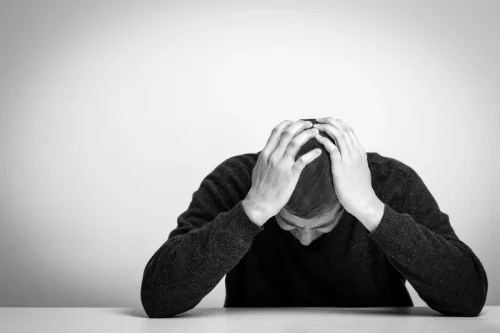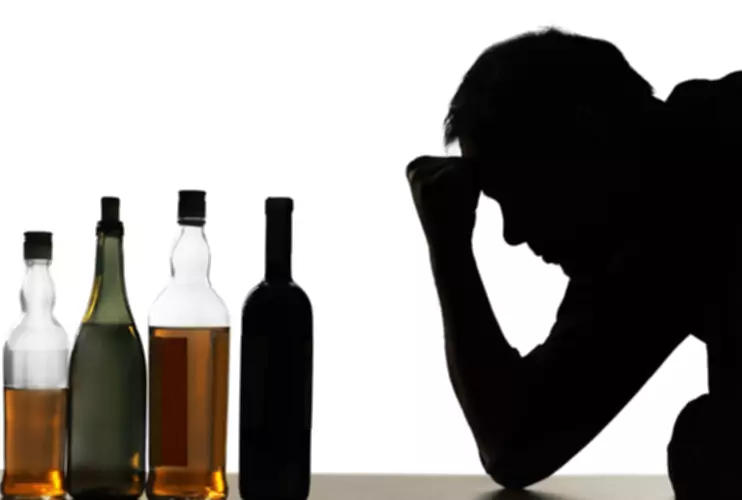
Some people place more importance on sex than others, but this is still an important element of a thriving romantic relationship. If your drinking is causing you to pass out, blackout or get sick, this is going to put a damper on intimate activities. Just ask yourself why you feel the need to be dishonest about your drinking. Successful relationships are built on a foundation of honesty and trust, and any type of secrecy is a red flag.
French McDonald’s threatens to remove menu item after Step Curry breaks country’s Olympic hearts
- Alcohol can impair cognitive functioning and inhibit effective communication in a relationship.
- When you use alcohol to relax or reward yourself, it creates a strong association in your brain between alcohol and pleasure.
- Alcoholism may be a deal breaker in a relationship due to the fact that it frequently results in negative effects that might have an impact on the well-being of both parties.
If you or someone you love has an alcohol use problem and are concerned about the impact it might be having on family and friends, talk to your healthcare provider. Effective treatments are available, and your provider can advise on next steps. Your provider can prescribe medications that can help people stop drinking and help with symptoms of alcohol withdrawal.
Browns rookie Mike Hall Jr. arrested on domestic violence charge
- Being mindful of this relationship requires honesty and courage about how alcohol impacts your health, relationships, work, and other social obligations.
- Hiding your drinking from a loved one is a common sign that your habits have become unhealthy.
- For instance, a worried husband may voice his concerns when he sees his wife pouring wine after work every day.
It’s important to note that while there is a correlation between domestic abuse and alcohol, alcohol abuse doesn’t cause physical violence. Most people who are considered heavy drinkers don’t abuse their partners. If you or your spouse or partner lives with an alcohol addiction, help is available.
Join A Support Group
Doing so will help you reduce the risk of beer, wine, or liquor degrading the health of your relationship. While you can self-diagnose this disorder, it is difficult to recover without help. The Recovery Village specializes in helping people with alcohol addiction make it safely through alcohol detox and then gain the skills and resources necessary to live a fulfilling life without alcohol.

Sometimes, we have questions or concerns about our relationship with alcohol, but we’re not sure where to turn for answers or if a problem even exists. Designed as a quick, at-home assessment, a quiz can help you evaluate if drinking is getting in the way of your happiness or other aspects of your life. Alcohol problems can quickly damage relationships, though it’s often more challenging to determine whether you have one if you’re dealing with an addiction. Therefore, one of the best ways to prevent alcohol from altering your relationships is to recognize the beginning signs and stages of addiction. Even if you believe your partner is more important than any substance, your actions will likely prove otherwise if you have alcohol use disorder.
Join a Support Group
See this article on alcohol use disorder (AUD) to learn more about how healthcare professionals diagnose AUD and what counts as moderate, heavy, and binge drinking. It’s essential to avoid becoming codependent if you feel you’re in a relationship impacted by alcohol addiction. As stated above, keeping a distance is necessary to avoid enabling and ensure you don’t become emotionally dependent on helping them. Alcohol use disorder severely impacts an individual’s personality and, as a result, can make them unrecognizable from the person they were before they started drinking. People with alcohol addiction often become secretive over time to hide their dependence out of fear, shame or guilt. Alcohol use disorder can lead to lost friendships, estranged marriages and family conflict.
- They may find their options for other social interaction limited, and this may further be compounded by financial troubles or other problems related to the incidence of alcoholism.
- Consider trying to see things from your loved one’s point of view, even if it doesn’t make sense to you.
- Alcohol can cause intimacy issues that lead to breakups, estranged marriages or lost friendships.
The connection between alcohol, interpersonal violence and codependency is widely documented. Constant conflict or neglect can severely impact children of parents with alcohol addiction. They may experience loneliness, depression, guilt, anxiety, anger issues and an inability to trust others. Alcohol use disorder (AUD) is a common addiction, affecting nearly 15 million adults in the United States. While alcohol dependence can be devastating to one’s health, it can also impact a person’s relationships, including the most meaningful people in their life. Or do you feel like you can’t seem to have a single good day anymore, no matter how hard you try?
You Prioritized Alcohol Over Your Lover

If you have suspicions that alcohol misuse may be destroying your relationship, consider these signs and if you have general symptoms of alcoholism. I often wonder why it took me 20 years of heavy and frequent binge drinking to realize that I was poisoning my body and mind every time I downed a glass of wine. Unfortunately, drinking ruins relationships many people are not aware that there are medications available to help treat alcohol use disorder. According to one 2019 survey, only around 1.6% of adults with an AUD reported using medications during treatment. Recovery from alcohol addiction is a process that takes time and may involve setbacks.

Being able to identify the types of alcohol problems will help you have a better understanding of your relationship with drinking. Separate from alcoholism or alcohol dependence, alcohol use disorder is characterized by problem drinking that becomes severe, eventually leading to adverse social, occupational, or health consequences. You can expect to answer questions about the number of times you drink alcohol in a week, if you’ve ever tried to quit drinking, how you deal with cravings, how you feel after drinking, and more. If the results indicate any issues, it might be time to ask yourself about the role alcohol plays in your life. Often, this journey begins with a better understanding of alcohol use disorder.

